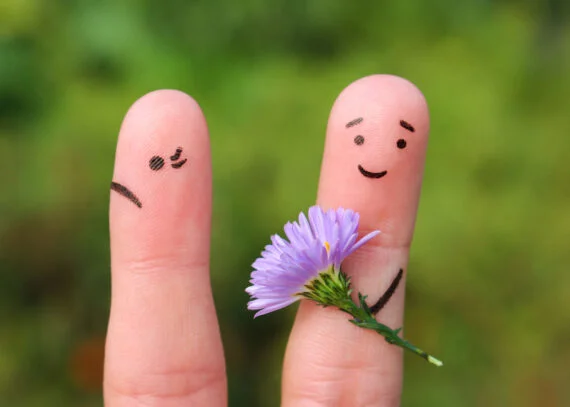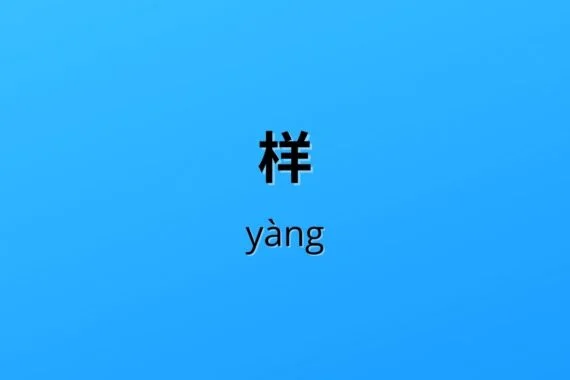15 Chinese Jokes to Crack to Your Friends

Did you hear about the party at the Chinese zoo? It was a Panda-monium! We sincerely apologize for making you read that with your own eyes.
We’ve prepared a selection of some of the best Chinese jokes that will make you laugh, cry, cringe, roll your eyes, and groan in agony. Continue reading at your own risk and with an open mind!
Chinglish jokes
What better way to break down language barriers than humor and laughter? However, Chinese humor takes some getting used to. Unlike Western sarcasm, irony, and self-deprecating jokes, Chinese humor mostly relies on linguistics and deadpan comedy. Many foreigners don’t find Chinese jokes hilarious, but learning jokes is the way to go if you want to speak other languages besides English.
Chinglish jokes combine Mandarin Chinese and English to deliver a very silly (yet clever!) pun.
These types of jokes in Chinese are perfect for beginners who are learning Chinese as they are pretty simple and usually don’t require a lot of explanation. Chinglish jokes are also a good way to practice pinyin and Chinese pronunciation!
1. ABCD
问:谁比较高?A还是C?wèn: shéi bǐ jiào gāo? A hái shi C?
答:C,因为, A比C低。dá: C, yīn wei A bǐ C dī.
Question: Who is taller? A or C?
Answer: C because A is lower than C.
Need some help with the alphabet? The ABCD joke is probably one of the easiest Mandarin Chinese jokes on this list, but it still requires at least an essential understanding of Chinese characters.
Still don’t get it? No worries, we got you! All you need to know is how to pronounce 比 bǐ and 低 dī. Put it all together, and you got yourself a very punny a-b-c-d!
The best part is that the joke makes perfect sense in Mandarin. The 比 bǐ character is used to make comparisons in the Chinese language. It’s placed between the two things being compared (A and C in this case.) 低 dī, which means “low.” So the answer to the original question is pretty much “A compared to C is lower.” When you think about it, not only is the joke funny, but it’s pretty smart too!

2. How are you?
A: How are you?
B: 好。
A: Yes, how?
B: 好。
A: $!#@$%$@%
The first thing that pops to mind when reading this “How are you” Chinese joke is that legendary scene from Rush Hour — YU know the one! Maybe it’s the overall simplicity or the fact that it’s so relatable, but this joke always lightens the mood.
The key to this funny Chinese joke lies in the character 好 hăo, meaning “good” or “well.” And since 好 hăo sounds eerily similar to the English “how,” the rest is self-explanatory. If you are trying to learn Chinese, easy jokes that don’t require much explanation and are simple to understand are the obvious choice. Fortunately, Chinese jokes are often a great starting point and can help you learn the language in a fun and effective way. Having friends in China with whom you can speak and have a conversation can make a world of difference.
3. Blood
A: 吸血鬼喜欢吃辣吗?A: Xīxuèguǐ xǐhuan chī là ma?
B: 不喜欢。B: Bù xǐhuan。
A: 为什么? A: Wèishénme?
B: 因为他们喜欢不辣的。B: Yīnwèi tāmen xǐhuan bù là de.
A: Do vampires like spicy food?
B: No, they don’t.
A: Why?
B: Because they like blood.
If you have ever wondered why vampires avoid Sichuan cuisine like the plague, this is your chance to find out!
Although most of these Mandarin Chinese jokes feature basic vocabulary, there are a few terms you might not encounter in everyday conversation. For instance, the word for a vampire in Chinese is 吸血鬼 xīxuèguǐ, which translates to “blood-sucking spirit” in English. But the gist of the joke lies in the word 辣 là, meaning “spicy.”
And how do we say “not spicy” in Chinese? That’s right—不辣的 bú là de, which kinda sounds like the word “blood” in English. Some might call it a stretch, but we like to think of it as peak comedy.

Homophone jokes in Chinese (puns)
As a tonal language, it shouldn’t be surprising that Chinese humor is rooted in homophones and homonyms. To put it in another way, Chinese people love puns!
In Mandarin, the word for a pun is 谐音梗 xié yīn gěng, which translates to “homophonic stem.” Wordplay and puns have a special place in Chinese culture and are used not only as comic relief but are also associated with many beliefs and superstitions.
A funny pun is a good place to start if you want to impress your Chinese friends. Following jokes in Chinese, especially puns, is much easier with a deep comprehension of Chinese pinyin and an accompanying English translation.
4. Spider-Man
问:谁最知道猪?wèn: shéi zuì zhīdao zhū?
答:蜘蛛人! dá: zhī zhū rén!
Question: Who knows pigs very well?
Answer: Spider-Man!
Possibly some of the most famous puns in the Chinese language, the Spider-man chronicles continue to entertain the masses with their witty wordplay. Although there are several different versions of Spider-man puns, we’ve decided to feature only the most famous two.
You are off to a good start if you are a Marvel fan who learns Chinese by reading comic books. If not, no biggie. We are here to lend a helping hand! The only thing you need to know is that in China, Spider-Man is called 蜘蛛人 zhī zhū rén.
Like every pun, the joke is in the pronunciation. 蜘蛛人 sounds the same as 知猪人 zhī zhū rén, which, roughly translated, means “I know the pig-man.” Anybody else has “Spider-pig?” stuck in their head?

5. Superhero
问:谁是最坏的超级英雄?wèn: shéi shì zuì huài de chāojí yīngxíong?
答:失败的人!dá: shībài de rén!
“Question: who’s the worst superhero?”
Answer: “A loser!”
The adventures of Spider-Man continue! Or do they? At first glance, this short Chinese joke has nothing to do with the beloved superhero. So, what’s the catch?
The answer lies in the Chinese transliteration of the words 失败的 shībài de (loser) or, more specifically—in the sound they make. If you focus really hard, you might notice that shībàide bears some similarities with the English spider. Add 人 rén to it, and you’ll get a very sketchy Spider-Man. The transliteration of 失败的 shībài de, combined with its double meaning, results in a somewhat confusing but very effective pun. Although fun, it’s easy to miss a joke like this when you hear it for the first time. An English translation helps, but if you want to learn Mandarin, the best option is to speak with Chinese friends! And if puns don’t do it for you, there are a bunch of other categories you can focus on instead.
6. The class orangutan
快考试了,老师在课堂上帮同学们做重点提示。老师说:“这一题很重要,在前面画星星。” 小志回答说:“老师…可不可以用打勾的啊,猩猩好难画哦…” kuài kǎoshì le, lǎo shī zài kètáng shàng bāng tóngxué men zuò zhòng diǎn tíshì. lǎo shī shuō: “zhè yī tí hěn zhòngyào, zài qiánmian huà xīngxīng. Xiǎo Zhì huídá shuō: “lǎo shī… kě bù kěyǐ yòng dǎ gōu de a, xīngxing hǎo nán huà ó….”
Before the test, the teacher was helping the student by focusing on the key topics of the lesson. The teacher said, “This topic is very important. Mark this section with a star.” Xiao Zhi replied, “Teacher, may I use a checkmark? An orangutan is too hard to draw.”
Another one in line with homophonic Chinese jokes, this pun is ideal for more advanced learners. Its length and vocabulary allow you to practice new sounds, Chinese pinyin, and different words.
The main point of interest in The Class Orangutan are 星星 xīng xīng (star) and 猩猩 xīng xīng (orangutan.) As you might have noticed, while the words share the same pronunciation, they have different meanings. With that in mind, we can’t blame the little kid for misinterpreting what his teacher was saying, can we?

Cold jokes in Chinese
You know those jokes that are so bad that they are actually funny? Well, the Chinese have invented those. Cold jokes, or 冷笑话 lěng xiào huà in Mandarin, are intended to be bad, corny, or just downright lame. Think dad joke, but somehow worse.
Most of the time, cold jokes don’t have a punchline or a logical ending; they’re nonsensical and stupid, and that’s their appeal! Legend says that cold jokes are called that way because, once read, they send shivers down your spine.
Truth or myth? You be the judge!
7. Toothpick and hedgehog
有根牙签正在路上走着。他看到一只刺猬经过, 然后大喊:“等等我!公交车!” yǒu gēn yáqiān zhèngzài lù shàng zǒu zhe. tā kàn dào yī zhī cìwei jīngguò, ránhòu dà hǎn: “děng děng wǒ! gōngjiāochē! ”
A toothpick was walking down the street. He saw a hedgehog pass by and shouted, “Wait for me, bus!”
Your soul just left your body, right? Well, you can’t say we didn’t warn you!
The good thing about cold jokes (and yes, believe it or not, there’s a bright side to it) is that they make for great learning practice. Many Chinese jokes are usually short stories and can help build vocabulary and reading comprehension.
If you want to impress Chinese people by telling a cold joke, pay attention to your body language, or lack thereof. Lack of facial expressions, especially when telling cold jokes, is considered top-tier humor in China.

8. Fish
一条鱼在海里游泳,它越游越深,突然就哭了起来。另一条鱼经过问它:“你为什么哭呀?”那条鱼说: “我感觉压力好大哦。” yìtiáo yú zài hǎilǐ yóuyǒng, tā yuè yóu yuè shēn, tūrán jiù kū le qǐlái. lìng yìtiáo yú jīngguò wèn tā: “nǐ wèishénme kū ya?”. nà tiáo yú shuō: “ wǒ gǎnjué yālì hǎo dà ó.”
A fish was swimming in the sea. It went deeper and deeper, and suddenly began to cry. Another fish passed by and asked him, “Why are you crying?” That fish said, “I feel so much pressure.”
If you are staring blankly at the screen and waiting for that lightbulb moment when you promptly “get” the joke, stop. That moment will never come. This is a prime example of a cold joke 一 no punchline, no logic, and no sense. Just two fish having a friendly conversation.
Most Westerners don’t see the appeal of these so-called non-jokes. But share this with native speakers, and they’ll probably laugh their heads off. So, why is that? Well, the short answer is cultural differences. To fully grasp the intricacies of humor in Chinese society, we’d have to delve deep into Confucianism and its teachings. The belief system strongly advocated against humor as a concept, as it was believed that it “sets no standards for proper behavior.”
Does this mean that Chinese people are utterly devoid of humor? Absolutely not. But it does mean we should consider cultural references and differences even when discussing something as simple as jokes.
9. Married couple
一对夫妻出去吃饭。妻子突然大叫:“啊!我忘了关瓦斯,可能会发生火灾!” 丈夫却安慰她说:“没关系, 反正我也忘了关洗手檯的水。” yīduì fūqī chūqù chīfàn. qīzi túrán dà jiào: “a! wǒ wàng le guān wǎsī, kěnéng huì fāshēng huǒzāi!” zhàngfū què ān wèi tā shuō: “méi guānxì. fǎnzheng wǒ yě wàng le guān xǐshǒu tái de shuǐ.”
A married couple went out for dinner. Suddenly, the wife shouted: “Oh! I forgot to turn off the gas. There could be a fire!” To comfort her, the husband said: “It’s okay. Anyway, I also forgot to turn off the water faucet.”
Relationship jokes, specifically marriage jokes, seem to do quite well in Chinese society. However, most Chinese jokes are usually lighthearted, tame, and almost respectful to a certain degree. Personal topics are often taboo in China, so people avoid joking about them not to lose face.
In the West, it’s not uncommon to see people in relationships engage in casual banter. However, while laughing at each other seems to be a sign of a healthy relationship in the West, in China, these types of things could have the opposite effect. It all comes back to what’s culturally appropriate. For a society with such deep family reverence, it would be unacceptable to poke fun at loved ones. Could you ever imagine a Chinese person saying a yo-mama joke? Yeah, exactly.

10. How much does it cost to get married?
一个小孩儿问他的爸爸:“爸爸,结婚需要花多少钱?” 爸爸说: “儿子,我不知道。我 还在付款!” yī gè xiǎo hái ér wèn tāde bàba: “bàba, jiéhūn xūyào huā duōshǎo qián?” bà ba shuō: “ér zi, wǒ bù zhīdào. wǒ hái zài fù kuǎn!”
A little kid asked his father: “Dad, how much does it cost to get married?” The father said: “Son, I don’t know. I’m still paying!”
What do you get when you mix marriage and money? Another Chinese non-joke!
Now, you would expect that a culture so concerned with reputation and saving face would steer away from tricky subjects like finances. Well, think again! Chinese millennials are fighting against rising prices, the daily grind, the 996 working hour system, and the overall economic, political, and societal pressures with dark humor.
Thus, the 丧 sàng culture was born. Dark, depressing, moody, and pessimistic, 丧 sàng represents the desperate cries of millions of Chinese urban youths yearning for something more. Although life in China might seem like the upside down from Stranger Things to a foreigner, the truth is that everybody in the world lives in a parallel reality. Especially young people. It doesn’t matter if you are a student, teacher, doctor, or just some guy trying to get by, life can often be gloomy, and there’s nothing like a bit of humor to brighten the day.
11. Don’t put off until tomorrow what you can do today
妈妈说: “今天能完成的事,不要留到明天。” 儿子回答:“好吧,把全蛋糕给我,我今天都吃光了吧。” māma shuō: “jīn tiān néng wán chéng de shì, bù yào liú dào míngtiān.” érzi huí dá: “hǎo ba, ba quán dàngāo gěi wǒ, wǒ dōu chī guāng le ba.”
Mom says: “Do not put off until tomorrow what you can do today.” The son responds: “Okay, then give me the cake. I will eat the whole thing today.”
Ah, the classic kid-outsmarts-adult act never gets old. Whether you find it humorous, this type of comic dialogue is extremely popular in China. One of the most popular elements of Chinese culture is called 相声 xiàngsheng, or crosstalk in English. The performance will often feature a comedian telling a funny story or conversing with another performer. Most of the time, no facial expression, a deadpan look, and witty wordplay are essential for these Chinese jokes.
Although solo and multi-performances exist, the act is usually performed as a duet. Think Abbott and Costello, but with lots of funny puns, allusions, and an occasional musical act. How’s that for stand-up comedy?

Chinese character jokes
Like puns take advantage of the different sounds and homophones in the Chinese language, Chinese character jokes do the same thing with various characters.
While some Chinese jokes require a deeper understanding of Chinese radicals, many are easily understood from the context alone. They are a great way to expand your vocabulary and improve your Chinese proficiency in a fun way!
These Chinese jokes follow the age-old rule of “Show, don’t tell.”
12. Boating
了先生有天去划船,于是…孑孓孑孓孑孓孑孓… Le xiānsheng yǒutiān qù huá chuán, yúshì …jié jué jié jué jié jué jié jué.
Mr. Le went boating one day, and he…
Unlike Chinese puns that rely on sounds and tones to get their point across, Chinese character humor is all about the written word. Most of the time, many Chinese jokes are pretty easy to understand, but sometimes, you’ll need to look for clues. In the case of “Boating,” the joke is right there in front of you. The sound and meaning are irrelevant here; all that matters is what the characters look like, and they look like Mr. Le is rowing a boat!
13. Handsome me
A: “我好帅”繁体字怎么写?A: “Wǒ hǎo shuài” fántǐ zì zěnme xiě?
B: 为什么是繁体字?B: Wèishénme shì fántǐ zì?
A: 因为我不是简单的帅。A: Yīnwèi wǒ búshì jiǎndān de shuài.
A: How do you write “I am so handsome” in traditional Chinese characters?
B: Why traditional Chinese?
A: Because I am not simply handsome.
Some would argue that this joke belongs in the wordplay category, and they wouldn’t be wrong! However, we thought it deserved a place here, especially since it references traditional and simplified Mandarin characters.
Don’t worry; you don’t need to know any characters to understand this joke. But, learning traditional Chinese characters could help you better understand semantic and phonetic components if you are looking to improve your proficiency.

14. Cup
美国人:你见过木头做的杯子吗?Měiguó rén: Nǐ jiàn guò mùtou zuò de bēizi ma?
中国人:没有。Zhōngguó rén: Méiyǒu.
美国人:那为什么你们中国字的“杯”是木字旁?Měiguó rén: Nà wèishénme nǐmen Zhōngguó zì de “bēi ” shì mù zì páng?
中国人:你没看到“木”旁边有个“不”吗?也就是说它不是木头做的。Zhōngguó rén: Nǐ méi kàn dào “mù ” pángbiān yǒu gè “bù ” ma? Yě jiù shì shuō tā búshì mùtou zuò de.
American person: Have you ever seen a cup made of wood?
Chinese person: Nope.
American person: Then how come the Chinese character “杯” (cup) has the wood radical (木) in it?
Chinese person: Can’t you see there is a “不” (not) next to the “木” (wood)? It says cups are not made of wood.
Raise your hand if you’ve ever been personally victimized by Chinese radicals. Those who have spent hours upon hours studying Mandarin characters and how they are formed will enjoy this joke. I think we can all relate to the American in this joke. So, let’s get down to brass tacks: Why does the character for cup have 不 bù (not) next to 木 mù (wood)? Is it even a negation? Does it have some hidden meaning?
No, nothing like that. The explanation is quite simple: 杯 bēi is a pictophonetic character, which means that 木 mù conveys the meaning, while 不 bù indicates the sound. Cool, isn’t it?
15. Steaks
问:一个七分熟的牛排和一个五分熟的牛排相遇了。可它们却没有打招呼,为什么?
答:因 为 都 不 熟!
wèn: yī gè qī fēn shú de niú pái hé yī gè wǔ fēn shú de niú pái xiāng yù le. kě tā men què méi yǒu dǎ zhāo hū, wèi shén me?
dá: yīn wèi dōu bù shú!
Question: A seven-minute (medium-well) steak and a five-minute (medium) steak meet on the street, but they don’t say hello to each other. Why?
Answer: Because they aren’t familiar with each other!
“Steaks” hilariously and effectively showcase Chinese words with double meanings. Depending on the context, the character 熟 shú can mean one of two things: cooked/done (in terms of food) or familiar/well-acquainted (in terms of personal relationships.)
With that in mind, it’s not difficult to ascertain why these two slabs of meat ignored each other. But if they did decide to acknowledge one another, we bet they would say: “Nice to MEAT you!” We’ll let ourselves out.

Chinese vs. Western jokes
A lot of us grew up listening to jokes, rhymes, and tongue twisters that were often crude and inappropriate to some extent. Cultural themes, personal anecdotes, and taboo topics were considered the foundations of a good, classic joke. Can you imagine a night out with your friends without a spell of casual banter? Being able to laugh at yourself (and others) is pretty much what Western comedy is all about.
However, if you are learning Chinese, disparagement humor won’t take you very far, and you might have better luck engaging in meaningful conversation with native speakers. In a collectivist culture like China, jokes about social influence, authority, and the government are a big no-no. Topics about personal life and anything that could cause a person to “lose face” should also be avoided. Instead, play it safe by sticking to linguistics, homophones, and an occasional cold joke.
Having fun yet? Or groaning in agony?
Well, one thing is certain 一 you are learning something new! Cracking jokes in Chinese is a surefire way to improve your language proficiency. You are more likely to make friends and converse with native speakers, but you are also one step closer to understanding the context and cultural nuances behind the language.
They say that humor is universal, but it can be quite diverse. Telling jokes is one of the best ways to master the intricacies of a foreign language. So, the next time your Chinese friend cracks a cold joke, try to MEAT them halfway instead of rolling your eyes.








